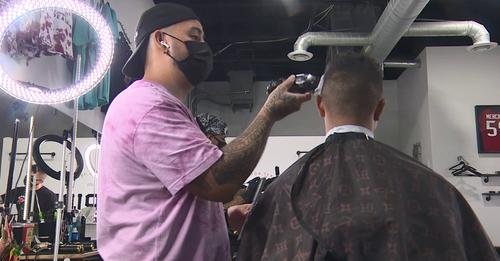Finland is home to more than 5.4 million people spread over across +338,424 kilometres (Finland is the sparsest populated country in the EU), and yet it boasts over 10% of the world’s startup exits. Finland’s scarcity of resources and changes in the telecom infrastructure has led to a serious body of tech-heads and talent which is now leading the next generation of talent. Previously only having a relatively minor tech presence (but a big tech ‘scene’), the region has exploded over the last decade since the early days of Nokia to produce a vibrant community form with big names from Rovio, Supercell, Seriously, Framery and King to name but a few.
Many don’t realise that in the last five years, Finland has seen at least one billion-dollar exit per year. “Finnish start-ups are tending to be bought before they can list” according to Markus Suomi, CEO of Finnish trade, investment agency Finpro. That’s no accident. With over 500 startups in Helsinki alone, Finland’s capital has become a Mecca for gaming startups ($2.4bn revenue in 2015) but is also growing other areas in clean tech, fin-tech, ITC and food services (like Epic Foods) as investor attention floods in. Slush – the now multi-territory startup mega-fest – has been a big part of this success but there’s more than simple organisation behind Finland’s and Helsinki’s startup prowess. The success stems back to the early 2000’s when there was a huge demo scene that attracted +13,000 people to ice hockey rinks to see experimental tech nerds and artists showcase their ideas. When you talk to startups in Helsinki, it’s clear the Founders were inspired by history as much as a passion for creating a different future.
From chatting with government officials, startup leaders, educators and residents; it is clear that Finland made startups a priority and is now laser focused on the youth to drive the future. From the ice-cold Oulu-based Polar Bear Pitching process (imaging pitching investors neck-deep in ice-cold water) to Lasse Männisto’s parliamentary startup group, the Finns are doing it differently, and it seems to be working. Three elements kept coming up and are a big part of Finland’s success:
1) A ‘make it work’ and ‘lower any barrier’ attitude; From mentors, “baby boxes”, to cutting through 5,610 feet of mountain to improve infrastructure (amongst other things), Finland seems to focus on eliminating barriers and approaching problems in a long-term and a significantly different way to other countries. Partly due to the size but more so the understanding of the impact this ecosystem has on the country, and its future. Maria 01 – a startup hub that houses hundreds of new companies created from an abandoned hospital – is an apt reminder of this attitude. Supercell’s CEO, Ilkka Paananen, summed it up when I asked him why there are so many exits in the region; “Finland pushes higher not harder”.
2) Government support for the startups is close but not overbearing; From public support campaigns, a dedicated funding agency for innovation (‘Tekes’), dedicated mentor programs and help with structure and recruitment policies – the government is extremely involved rather than simply being a cheerleader but they “know our place” according to one Minister. Several government officials noted the initial results are promising with more student-led startups being “born”, but the longer-lasting results are yet to come. Marianne Vikkula, CEO of Slush, is a huge fan of ‘Startup Sauna‘ which is both a feedback mechanic and a full yearly accelerator program; “Serial entrepreneurs mentoring the companies in the accelerator because they free-willingly want to help [is the reason for recent success]. Finland has created a strong history of doing things together rather than competing.”
3) A focused start; Despite a declining birth rate, several people I spoke with (and practices I observed) Finnish children seem to have three things reinforced in them; simplicity, resilience and confidence. A lot about living in Finland – from what I have observed – is about simplicity. People do not over consume. Homes are modest, and people care less about brands – generally, it’s very much a quality, not quantity, attitude. The last element is carried on in their schooling system – customised, no standardised testing and a focus on happiness. From freezing outdoor stints from a young age (not as bad as it sounds) to coding as core curriculum, the Finnish are raising their children differently. Free medical aid, 36 days holiday (not including holidays) and mandatory paid maternity leave (four months) not withstanding, the focus on happiness and entrepreneurial spirit are paying off for children and adults alike.
Finland continues to focus on its strong gaming startup heritage, but the new wave of startups show signs of Finland expanding its focus as the money keeps on coming; Paptic is focusing on recycling, Claned could change the way the world thinks about education, Venuu is re-envisioning event space organisation and VAU is making personalised video manageable. One thing is clear, Finland is not resting on its early success.









